The Psalms' 2020
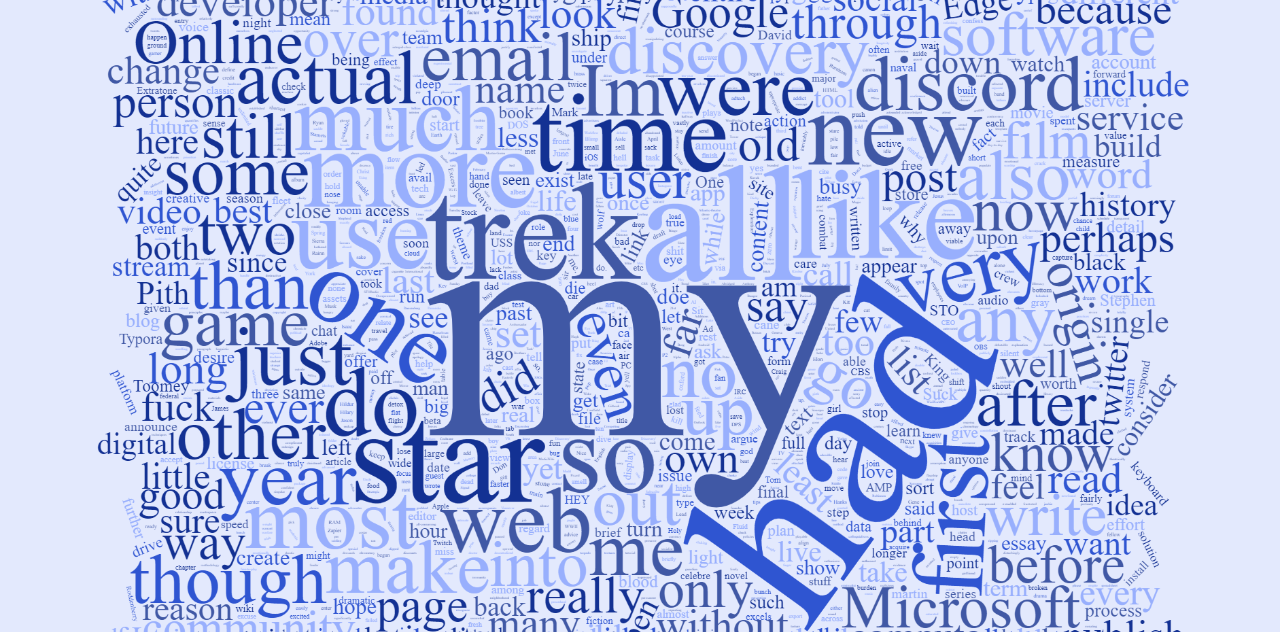
Screens and software subjects big & small discussed within my most moderate 35,000 words ever.
Believe it or not, the cyclical cold season has once again come to pass! Oh, the W̘͖̯E̟̹À̫T̯̫͓̪̮͓̼H̝E̪͇̰̘̖͍ͅŔ͍̖̱̟̪!! If the past two days on Twitter were any indication, it is indeed time for a year's-end retrospective on what has been published on this Web Site. Given the extent of the attention I've devoted to bilge.world this past year – both technically and editorially – I thought it would be nice to chuck in a bit more in the pursuit of whacking myself on the back. I understand that 2020 has been one helluva catastrophic marker of linear time for just about everyone on Earth – as I write this on its last day, the inexplicable news of MF Doom's death has just surfaced and has already hit my adjacent communities remarkably hard.
https://t.co/qb7NsZ8os6 - May 1st of this year vs. today.
— ※ David Blue ※ (@NeoYokel) December 3, 2020
I had forgotten *a lot* more about CSS and HTML than I originally thought. glad I ended up comfortable enough to find myself with a completely original stylesheet before the end of the year, I suppose. pic.twitter.com/4QwlbEJECU
Spring
The earliest archive.org capture of this particular Writeas blog dates back only to May 1st of this year, but its stylistic contrast with the site's current version is immense. I believe I was using Max Henderson's Anxiety theme virtually stock, albeit with some color rearrangements. By the 29th, I had already arrived upon the colors you see today. “You Know I'm Blogging” was just a meta update to say howdy after such a long drought, but “Dirty Dave's Poweruser Tips” actually proved popular (for me) among my newly-connected Fedi crowd, especially, thanks to an annotated share by Writeas on Twitter. Honestly, it was entirely worth it just for the accomplishment of exposing my platform peer Dino Bansigan to Alt+D. Writeas Community Manager CJ Eller and I began corresponding, which led to an interview regarding writing tools, managing fiddly compulsions, and the wonder of Markdown.
I think I'm just now coming around to understanding personal blogging and the freedom that entails. It's been a long while since I've had the urge to write about things on which I don't consider myself at least somewhat of an authority. I think – like many people – I originally just used my personal blog as a guinea pig for messing around with themes, and I'm just now actually catching up on some of the lesser items on my “to-write” list.
I dug deep in my long-overdue todo list for “Z̴͏a͞l͟g͝o͏ ̕G͟͝e͞n͞҉è̛ŗ͡a͝͞t̴o҉r͞ for iOS,” which – along with my 2018 review of Unichar – I felt was a necessary celebration of digital text as a weapon, which is very dear to me. “Preferred Writing Instruments” was probably the singular analog departure The Psalms will ever see and my condensed commentary on Star Trek: Picard, Star Trek: Discovery, and the current state of Star Trek: Online should fulfill all need mention of science fiction, here, for a very long time. Given yesterday's news regarding Slack's acquisition, perhaps I should feel revalidated in my insistence that “Discord is Better Than Slack,” but a developer friend of mine actually addressed my curiosity regarding why startups never mention Discord as a workplace option, despite its identical functionality: it's all about fuckin' enterprise security.
I had wanted to write about The Langoliers – Stephen King's flop of a made-for-TV movie/extended Twilight Zone episode – for a long while. It was probably the first program I watched as a child that genuinely disturbed me and always returns to my thoughts by barren-ish experiences. I had planned to watch the whole three hours all the way through and write whatever came to mind, but I only made it halfway or so in “Craig Toomey's Coronavirus” before I ran completely out of steam. I dropped what I had without revision, to this day. Perhaps one day I shall return...
In the right hour, the woodland springtime metamorphic processes of the neighboring Lake Geneva suburb’s in-betweens were in a paused state – the toads again hushed; the crickets tired, and the human populace, too. In the right hour, the fickle wind and the social owls were the only sound, and nothing moved but the sparse, light-footed doe in careful segments with her fawn.
These two sentences begin the sixth chapter of my indefinitely-postponed novel, Blimp's Burden, and are almost certainly my best writing, ever. My vanity simply wouldn't allow them to go forgotten, so I published the chapter as an excerpt on The Psalms. It may seem an intimidating wall of text, but give it your attention and you'll be amused, I think.
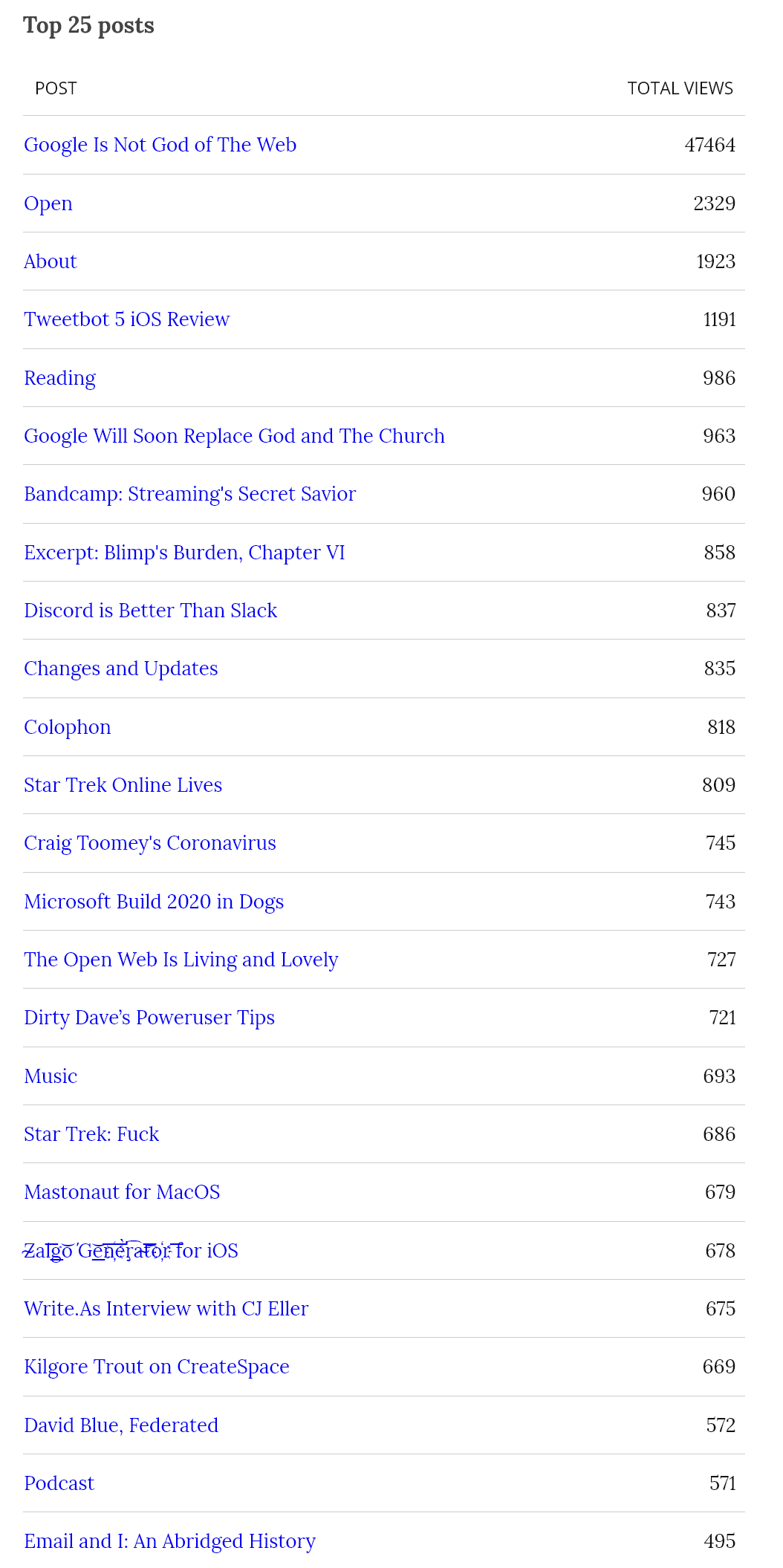
Summer
The general, distinctly 21st-century wisdom regarding one's content popularity seems to be something like you never know what's going to blow up. I experienced this phenomena quite severely for the first time in my writing life after posting “Google Is Not God of The Web” on HackerNews right before going out-of-touch for some 13 straight hours amidst a local BLM protest. I did not intend to write a baity title, nor did I expect anything to come of sharing it, there – I only did so simply because the thought crossed my mind. Honestly, it is probably the least-considered content I'd ever published on The Psalms – I only put it up when I did because I knew all of my energy was about to be absorbed for an entire weekend or more. I only started the thing because I felt it important to raise a small voice in reminder that tech media had started using language when discussing code/online development which had begun to assume the existence of a single, objective standard of measure for good web design. (Fuck your bootstrap baloney, The Drywall Website was a real paradigm shit.)
And yet... That single goddamned post would end up accruing more pageviews than all of my writing on the web, combined (I suspect.) Tens of thousands of words were written in hundreds of comments, which I did my best to parse in a for the hell of it substack email:
Out of everything I’ve shared on Bilge recently, it’s hilarious that this particular post – on which I spent a cumulative total of perhaps 25 minutes writing and made less effort than ever to edit – became probably my most widely-shared work of all time.
Once again, I am thankful for the readership and correspondence, I just really fucking wish it had been on literally anything else I've written about technology.
In retrospect, it really is bonkers that I was excited about yet another vague promise to re-imagine email in the days surrounding the launch of Basecamp's HEY, but I feel it's important to nurture what paltry genuine enthusiasm remains about technology and the future, so I decided to respond to the service's homepage prompt, asking interested visitors to write in with their own thoughts on email. I spent a morning clacking out “Email and I: An Abridged History,” which I hope will one day serve as a part-foundation for a thorough, composed extension to my Why I Write About Technology series. This would be The Psalms last relevant work for a few months, while I played around with an experimental WordPress website and dove into fuckin' school for the first time in seven years.
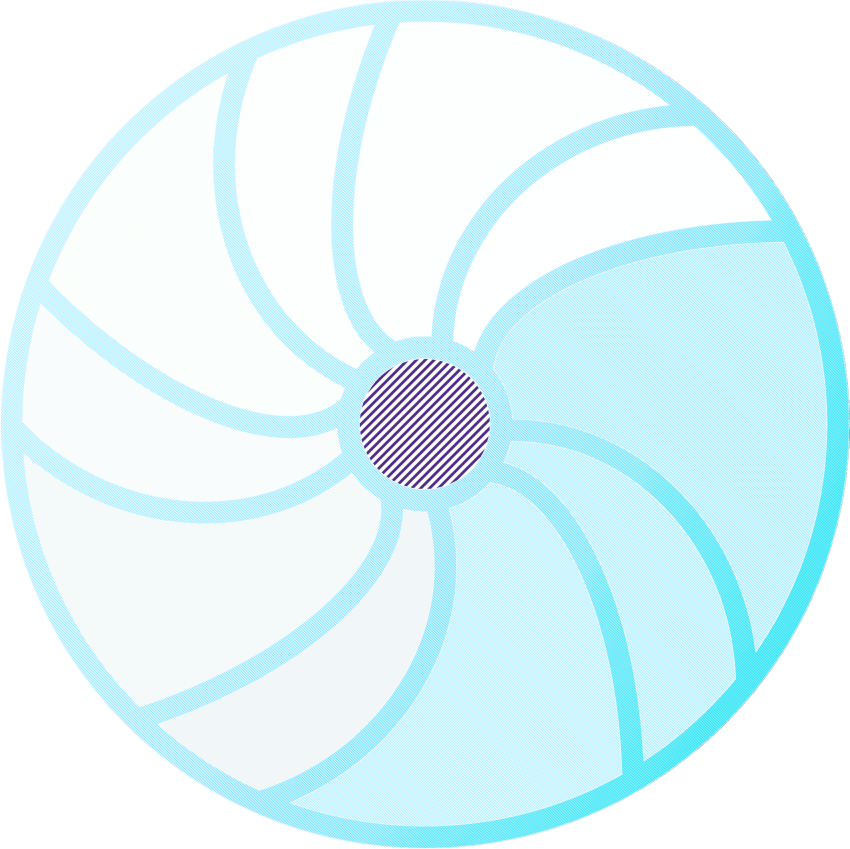
Fall
I returned in late September with a partial recount of what I'd discovered: “Indulging Once More in Digital Excess.” After exploring the concept of Digital Gardens, buying my first pro-ready desktop PC in 10 years, playing with Big Boy Adobe software for the first time, and reading a delightful book documenting the history of word processing, I arrived upon the term Software Historian with which to partially describe myself. It doesn't mean all that much at the moment, but will no doubt be explored imminently on this Web Site.
Addressing “The Social Dilemma's Dilemma” and “Software Thanksgiving” in detail would be awfully redundant, but I would at least note how they represent diametrically opposed perspectives through which to discuss this stuff. Going forward into 2021, I think it's important that I hold short on the progress I've made in moderating my voice since 2018. Digestibility is not a virtue I am at all interested in, nor is it an appropriate one in which to invest any more effort. Any non-radical argument will inevitably prove enormously unoriginal, which makes for a huge waste of all our time. For the moment, that's all the editorializing I've done.
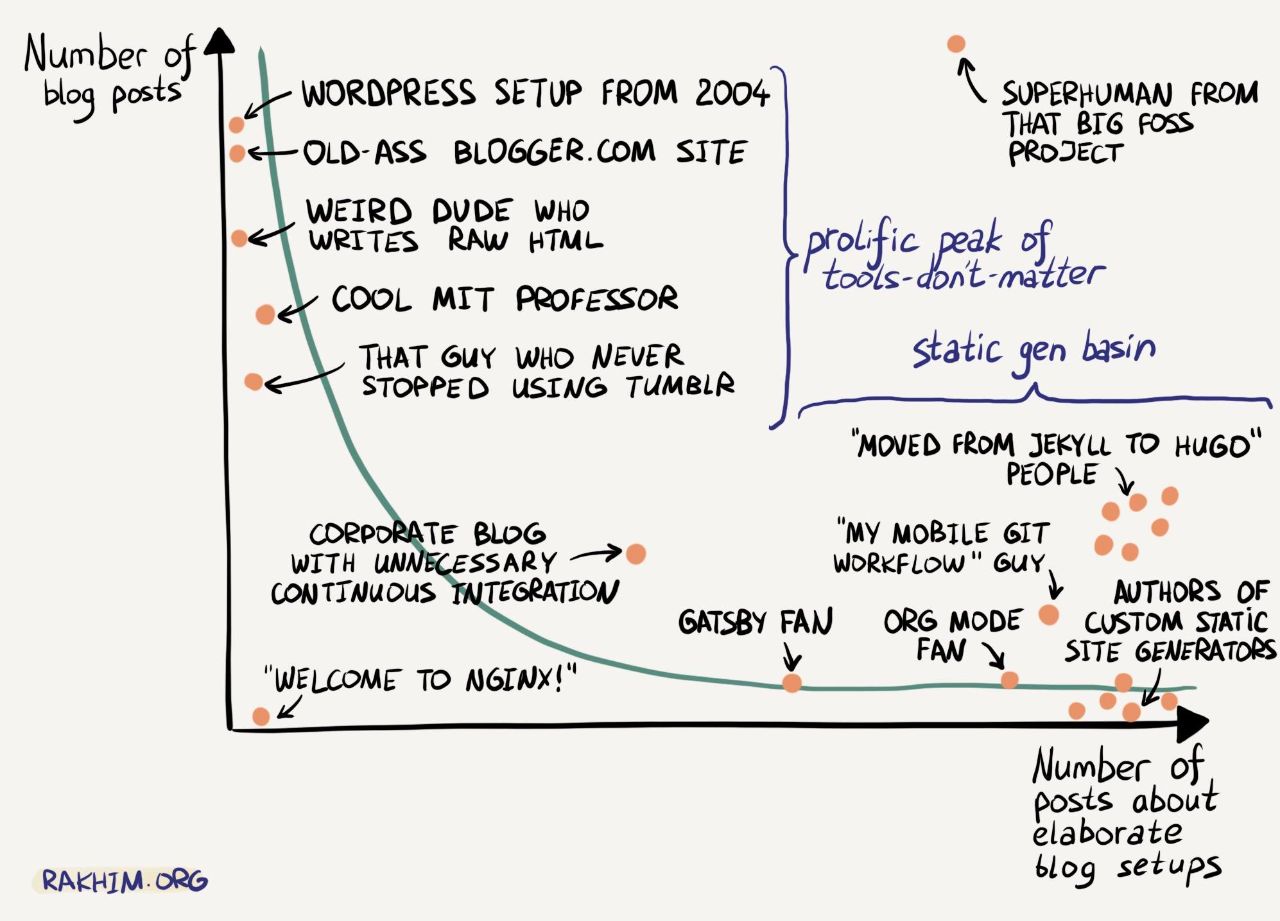
Three Point Oh
Somewhere along the research process for one of my school essays, I came across the concept of academic revision tracking and peer review via Git. Having dipped my toe back in academia, any such circumvention of its penchant for the most archaic practices possible was naturally intriguing. Just wait until I show these goons how to use hyperlinks. Perhaps inevitably, I was launched into the Git-Gone Bender I'm still riding simply because I finally had ample reason to actually understand it. In just two months, I've created and forked a total of nearly 80 repositories on my new GitHub account. Though I'd created one for each of my web properties ages ago, I had absolutely no idea how to actually make use of them, so they were all quickly abandoned. In the past two weeks or so, I think I've actually begun to get the hang of the system's core intricacies, best exemplified by The Psalms' Repository as it stands.
The “automated” Project Board I set up has so far been a very impressive replacement for the simple todo list. It tracks and categorizes Post Ideas in their various stages in my process: Mulling, Documentation (research,) Drafting, and actual Publication. Technical “Issues” regarding the CMS and/or the Repository, itself, have also fit in these categories well, so far. Just today, I discovered that one can simply tag Issues by their number to describe Commits, which form an impressive revision-tracking changelog when aggregated together. I also figured out the general idea behind Milestones and set The Psalms' first one for my 27th birthday, next month. The goal is to have figured this all out well enough by then that I'm no longer randomly stumbling upon entire featuresets multiple times in a workday. Thinking in Public – as my friend Tom Critchlow and his crowd say – is what I'm trying to do here, I think. Obviously, this really means that you are more than welcome to hop the fuck in at any time, in any manner you'd prefer. If Git is still no more than a conundrum for you – as it was for me just weeks ago – I would suggest the directory for In-Progress Drafts as a starting point.
requesting support on how to "leverage discussions" to talk about pee pee and poo poo. #GitHubUniverse
— ※ David Blue ※ (@NeoYokel) December 8, 2020
GitHub Actions are still more or less a mystery to me, but I am unbothered – The Psalms' seems to be producing green text instead of red, now, in the midst of whatever I set it up to do. I poked around the livestreams for “GitHub Universe” a few weeks ago, when dark mode and GitHub Discussions were opened up to more users. At the moment, I cannot imagine a single application for forums in the context of my blog's repository, but I turned them on, anyway. It's very possible that all of the documentation-generating functions of Git are entirely unnecessary in this case, but – as I entrust GitHub with the eternal task of archiving such work – it is my hope that it will help me add further structure to my process.
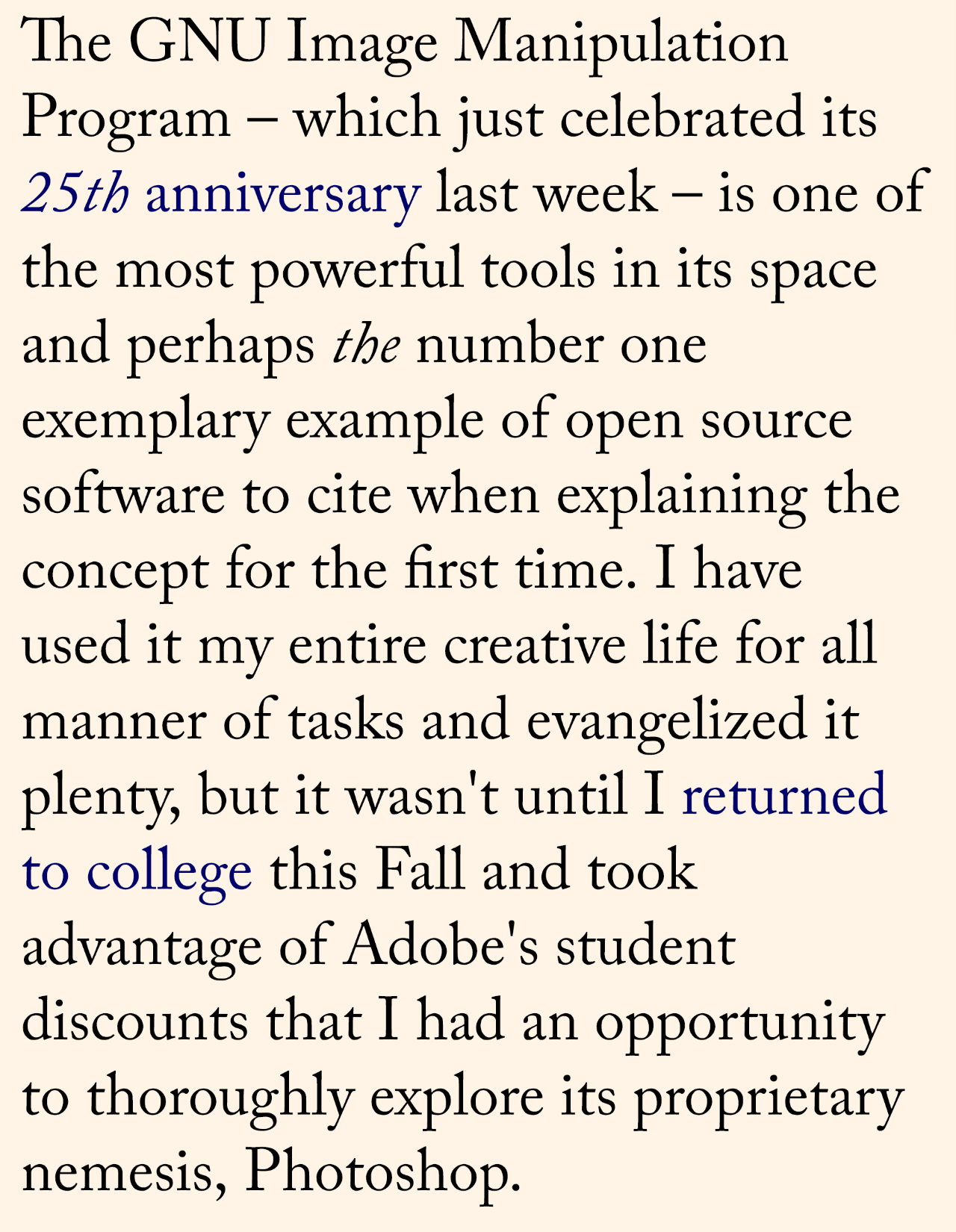
If you've found yourself in possession of a .edu email address and are interested in GitHub related experimentation, see this list of discounted/free dev programs/services for students, which includes a free subscription to “GitHub Pro.” (Apparently, equivalent to a $4/month service.) Adobe has similar discounts, as you’re probably already aware, which have allowed me to pursue my goal of learning InDesign. So far, I’ve created a sort of commemorative 404 page for The Drynet and a font showcase of Georgia for my mother. As much as I’d love to continue discussing the current state of Adobe apps, I’ve realized 1) I am quite distinct from a professional user, which is why I genuinely find GIMP more useful than Photoshop, for instance, and 2) given the length of my to-write list considering my current pace, I don’t know if I’d manage to get around to it in this lifetime.
Between now and the 11th of this month, I will be migrating worthwhile posts from the experimental WordPress site (WTF) here and closing its hosting account. I haven’t been compelled to actually do anything with it in months, and the handy redirects, alone, are not worth the upcosts, however fair. Some content – including the corresponding posts for my Adobe experiments will not be imported from WTF here. I’m also going to rely on the Web Archive for publishing the rest. Notable discoveries so far include “Through an iPhone 4’s Lens,” which is a reminder of how revolutionary that particular handset was, and a few extra-Psalms pieces of content I’d like you to experience, like this Notion gallery of my single jaunt into drawing, # DavidBlueDraws. Best of all is my friend Tevin’s episode of Extratone’s defunct flagship podcast. In the years since, he’s become quite the prolific Twitch streamer. (I’ve watched enough and know Tevin well enough to say that he’s particularly entertaining in this medium.)
Coming Soon
For better or worse, all of these new exploratory avenues have so far led directly away from the business of actually writing, but – in my best self-estimation – I suspect I’m mostly done with fiddling, now, and ready to start thinking on the page, again. Predictably, I’ve let my upcoming iPhone 12 Pro Max Review turn into quite a monstrosity over the past two months. It turns out, years of lapsed attention toward iOS development resulted in my feeling more out-of-the-loop than I expected, which I was compelled to remedy, naturally. If you’re so inclined, you can follow the minutia attached to my review process via this dedicated Snapas gallery, this shared iCloud album, my personal YouTube channel , and this Twitter collection.
SO... I’m really starting to see the magic now. I just took this and it’s 2AM... utterly dark outside. I managed to force my car mount to couple with a tripod and set the exposure to 30 seconds. pic.twitter.com/FMLGrFzgy2
— ※ David Blue ※ (@NeoYokel) December 31, 2020
As per my newfound use of GitHub, I’ve played around with various ways of documenting this journey, specifically. First is this Wiki page (which I shall do my best to remember to keep updated) listing the entirety of my writing history on iPhone and iOS. (It’s uh... A bit underwhelming, if I’m honest.) I’ve also just begun a dedicated repository for iOS-related documentation and resources, which will soon include a full, sensically-indexed list of iCloud share links to my entire Siri Shortcuts collection (I hope.) Immediately following the review, I intend to publish here a post dedicated to functions Apple has failed to properly document, which I expect to be the most widely-useful content on this domain. To see some of the suggestions I’ve received so far and/or to add your own, see this mildly-successful thread I posted in r/iOS.
When I have finally tired of talking about handsets once more, I hope to return my attention toward some other overwhelmingly-ambitious monstrosities like my academic paper proposing federated, open-source social networks in favor of the Big Boys, my report on the experience of returning to academia for a semester in 2020, and my evaluation of Notion as perhaps the next Big Step in the evolution of notetaking software. Perhaps before tackling projects the size of these, I intend to compile another listicle of handy tips for newcomers to Writeas. As I linked before, you can now view the entirety of The Psalms’ status in as much detail as you’d like via its Project Board on GitHub. As always, you can delight me by directly engaging on Twitter, Mastodon, Discord, and/or via email. Let’s hope 2021’s equivalent of this review doesn’t take me until February to publish!